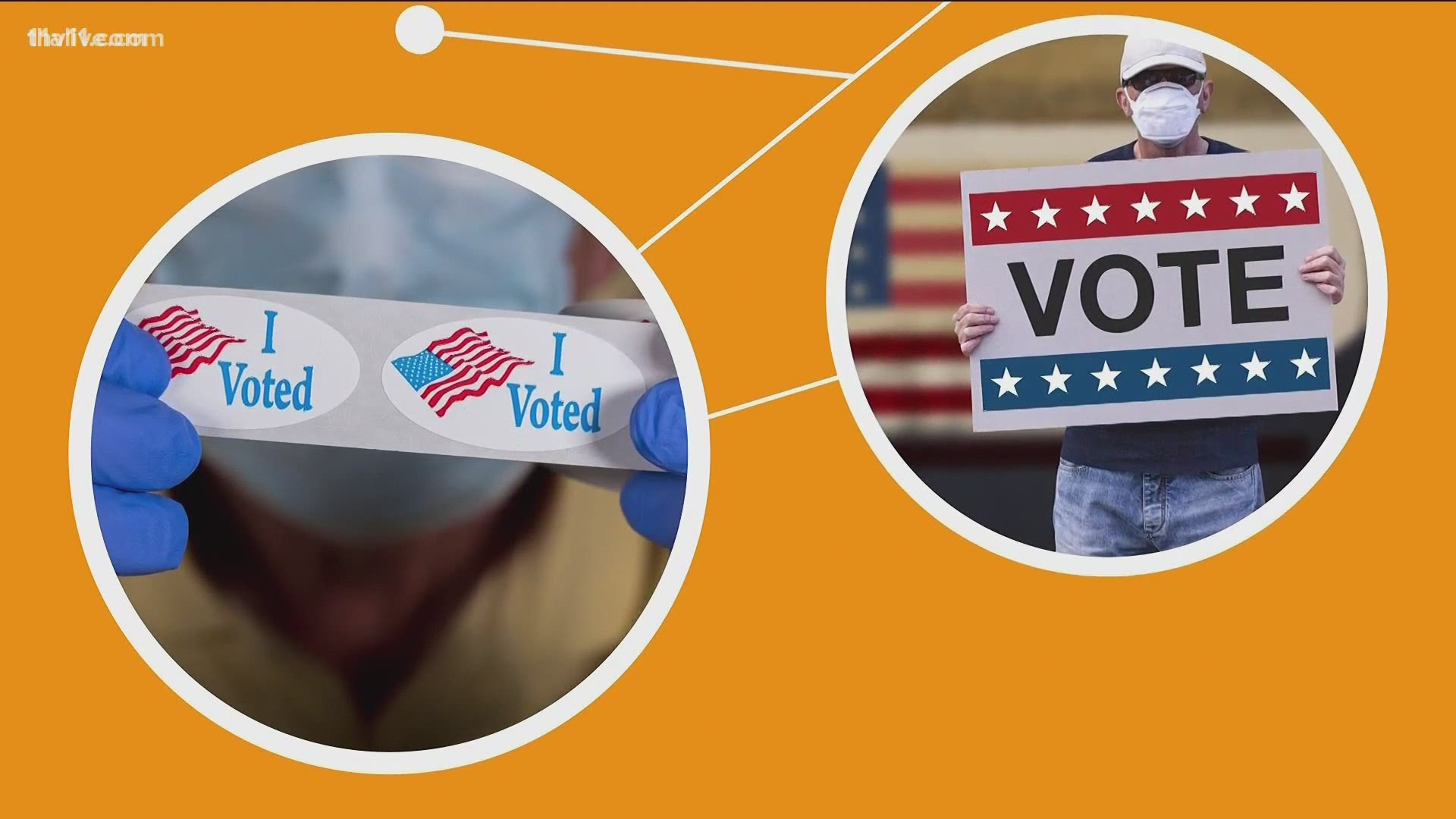Arkansans all have the right to vote in free and equal elections.
But how that process happens can change with new laws, determining everything from polling hours to who's eligible to vote, and possibly changing how Arkansans can make their voice heard.
It's Pulaski County Clerk Terri Hollingsworth's job to apply those laws.
"We need to have some guidelines rules to follow by, so that it would be free and fair for all people to be able to vote," Hollingsworth said.
Four laws were passed last year on voter identification, who can be at the polls, voting signatures, and when you can return an absentee ballot in person.
"Laws over time can change due to maybe we need to update and improve the laws that we have to fit modern times," Hollingsworth explained.
Act 728 bans anyone not there to vote from coming within 100 feet of a polling site except for children, someone legally assisting the voter, or there for lawful purposes.
This would come on top of the law already in place that does not allow campaigning that close to a polling site.
"If you try to give somebody some food or a snack or you know, some water, you are not able to do that within that 100 feet area," she said.
Act 249 would impact absentee voters and require all voters to provide a copy of their photo ID.
"If you're going to vote by absentee, then you must have your ID in the packet," Hollingsworth said.
Act 736 would more closely enforce ballot signatures to match voter registration signatures.
"I'm not a handwriting expert, neither are my staff members. And so then we've got to try to figure out is this, that person that that, you know, says that they are," Hollingsworth said.
Act 973 would bring up the deadline for Arkansas voters to hand in their absentee ballot in person.
This would change the deadline from the day before Election Day, to the Friday before.
"Usually voters were given at least that Monday before. And so that can be kind of confusing, which can make a problem for folks who are trying to vote," Hollingsworth said.
But earlier this month, these laws were blocked by Pulaski Circuit Judge Wendell Griffen, saying they were "unconstitutional" in making voting more difficult.
Many democrats agree with the ruling as Arkansas Senator Joyce Elliott has fought against these bills from the start. She shared back at a rally last spring, "I want you to know the legislators fighting for you have done everything they can do."
But many Republicans support some of the stricter laws. Attorney General Leslie Rutledge announced this week, she's going to appeal the Judge's block.
Governor Hutchinson also finding issue with the block saying: "States should be left with the flexibility to protect the integrity of the ballot box and the Supreme Court will have the opportunity to review the constitutionality of these laws"
So whether you believe they can improve security, obstruct voting, or even somewhere in between, the laws currently being debated in the courts could change how you vote in the next election.

